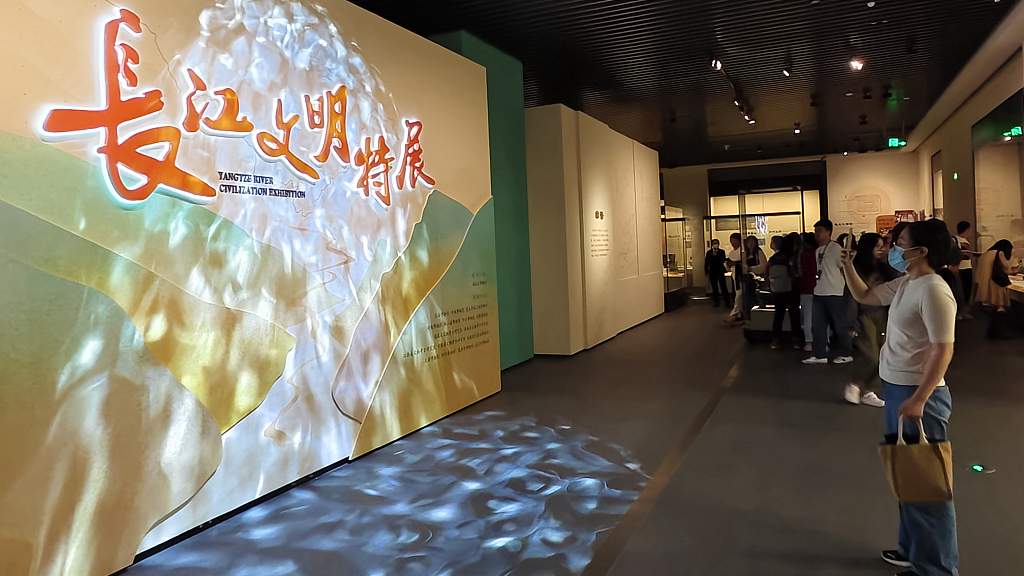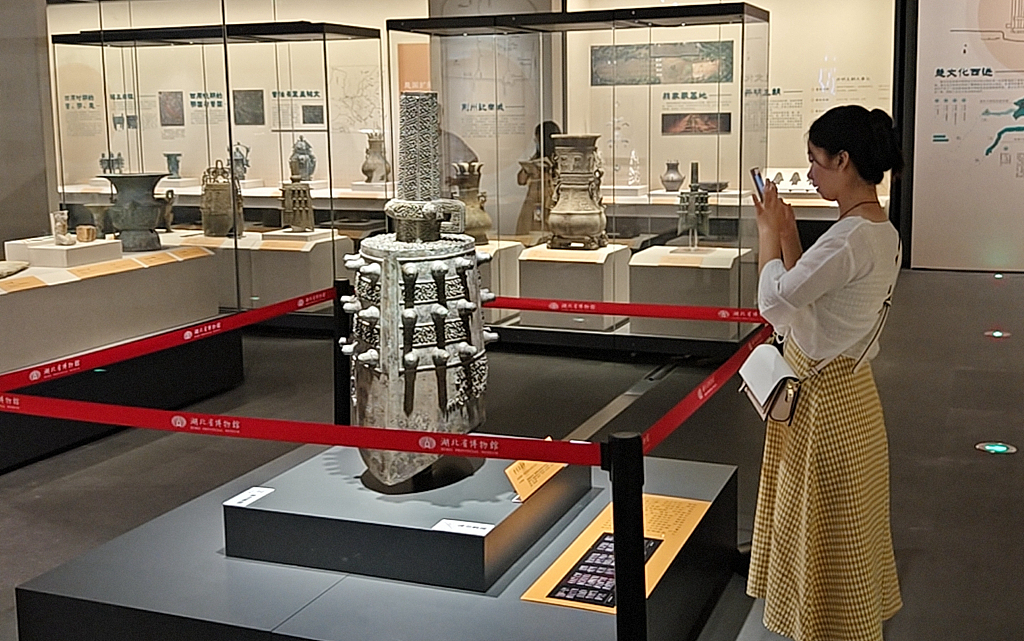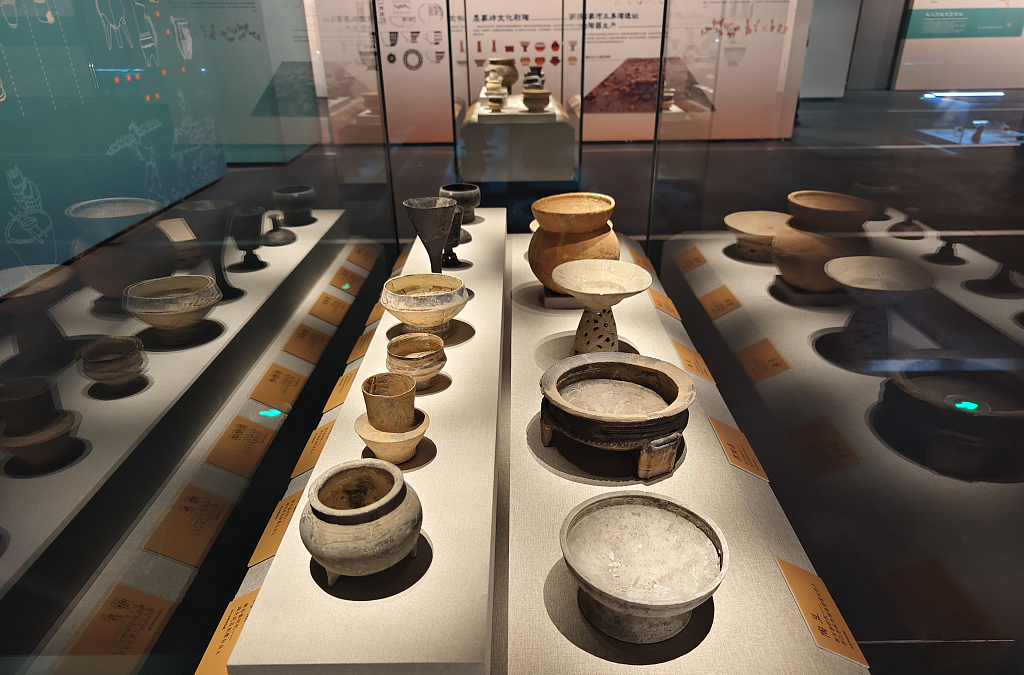
A photo taken on September 26, 2023 shows the "Yangtze River Civilization Exhibition" held at the Hubei Provincial Museum in Wuhan, Hubei Province, China. /CFP
A photo taken on September 26, 2023 shows the "Yangtze River Civilization Exhibition" held at the Hubei Provincial Museum in Wuhan, Hubei Province, China. /CFP
Prior to the National Day holiday, the “Yangtze River Civilization Exhibition,” jointly organized by the Hubei Provincial Museum and over ten provinces and cities along the Yangtze River, opened in Wuhan, Hubei Province.
The exhibition, commemorating the 70th anniversary of the establishment of the Hubei Provincial Museum, showcases the development of Yangtze River civilizations from prehistoric times to the Warring States period (475-221 BC) through over 200 exquisite cultural artifacts. It is the first exhibition to systematically explore the different cultural lineages along the upper, middle, and lower reaches of the Yangtze River from a cultural studies perspective.

A photo taken on September 26, 2023 shows a visitor taking photos of a cultural relic displayed at the "Yangtze River Civilization Exhibition" in Wuhan, Hubei Province, China. /CFP
A photo taken on September 26, 2023 shows a visitor taking photos of a cultural relic displayed at the "Yangtze River Civilization Exhibition" in Wuhan, Hubei Province, China. /CFP
Wang Xianfu, deputy director of the Hubei Provincial Museum, explained that throughout history, the people of the Yangtze River basin nurtured and developed a brilliant culture. The discovery of the fossils of Yuanmou Man and Yunxian Man showed that the Yangtze River basin was a crucial area for tracing the origins of early human life.
Innovations such as Neolithic pottery, rice farming and dugout canoes were significant contributions to the ancient civilizations of the Yangtze River basin. During the Xia (2100-1600 BC), Shang (1600-1100 BC) and Zhou (1100-221 BC) dynasties, the regional cultures of the Bashu, Jingchu, Wuyue and other peoples in the Yangtze River basin influenced by the Zhongyuan civilization, developed their own unique characteristics. Over time, they merged into the unified state of the Qin and Han, contributing to the ever-evolving source of Chinese civilization.

A photo taken on September 26, 2023 shows cultural relics on display at the Hubei Provincial Museum in Wuhan, Hubei Province, China. /CFP
A photo taken on September 26, 2023 shows cultural relics on display at the Hubei Provincial Museum in Wuhan, Hubei Province, China. /CFP
The exhibition is divided into two parts, using prehistoric pottery, lacquerware and jade artifacts to narrate the outstanding achievements of the early inhabitants of the Yangtze River basin in areas such as urbanization, handicrafts and rice farming. It demonstrates that the Yangtze River basin was a hotspot for various elements of civilization, including cities, words, metalwork and religion, making it one of the cradles of Chinese civilization.
The exhibition will run until January 3, 2024.